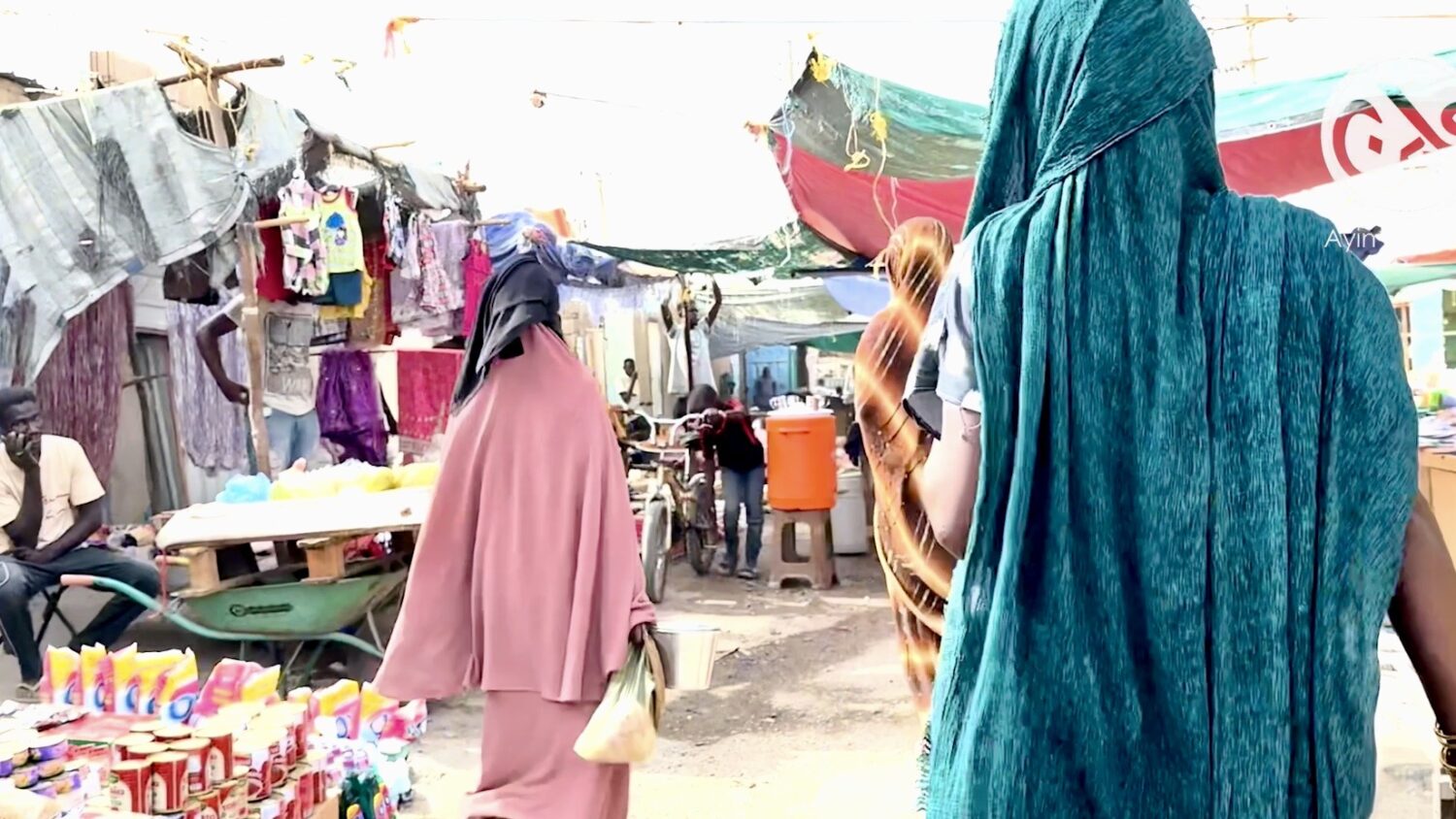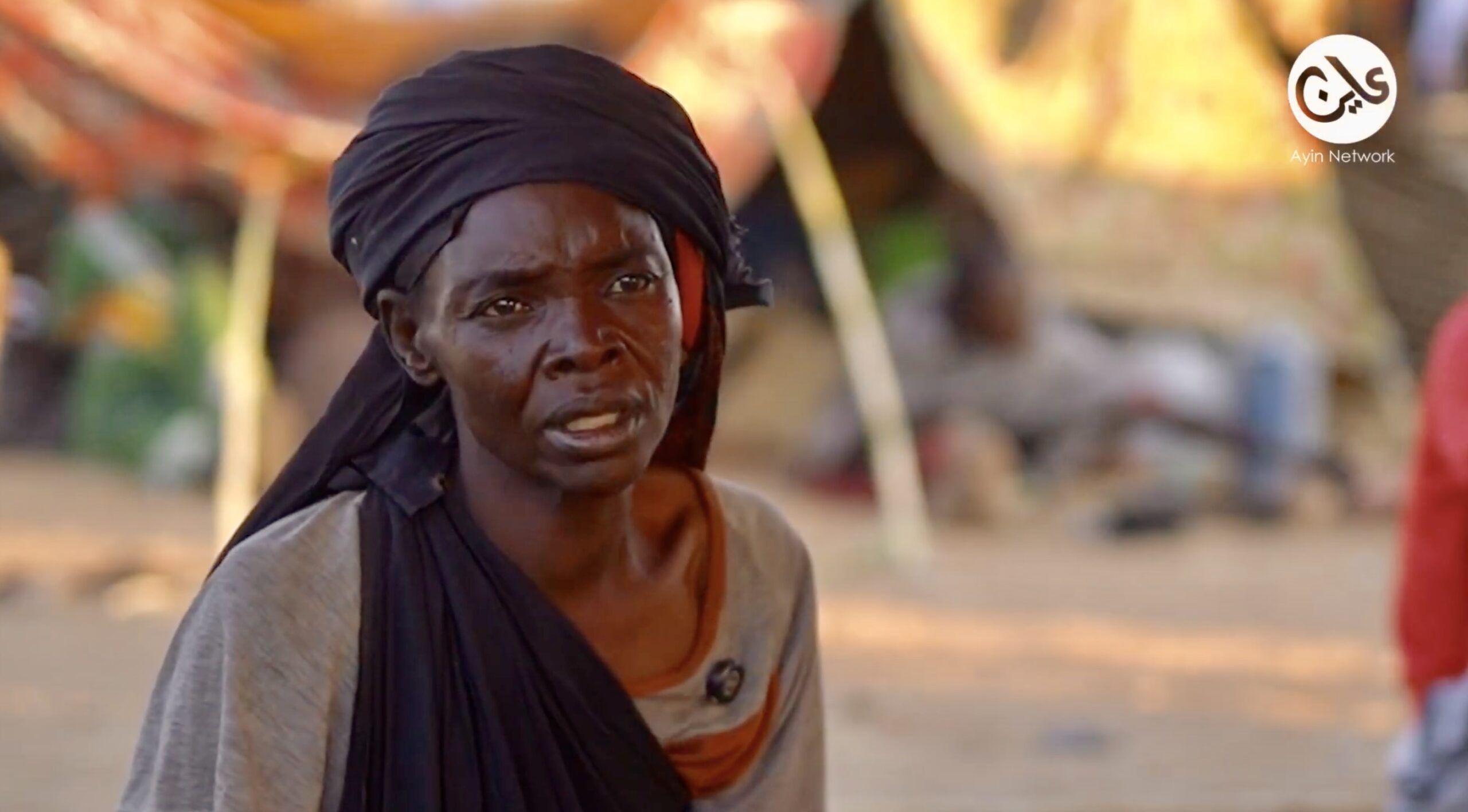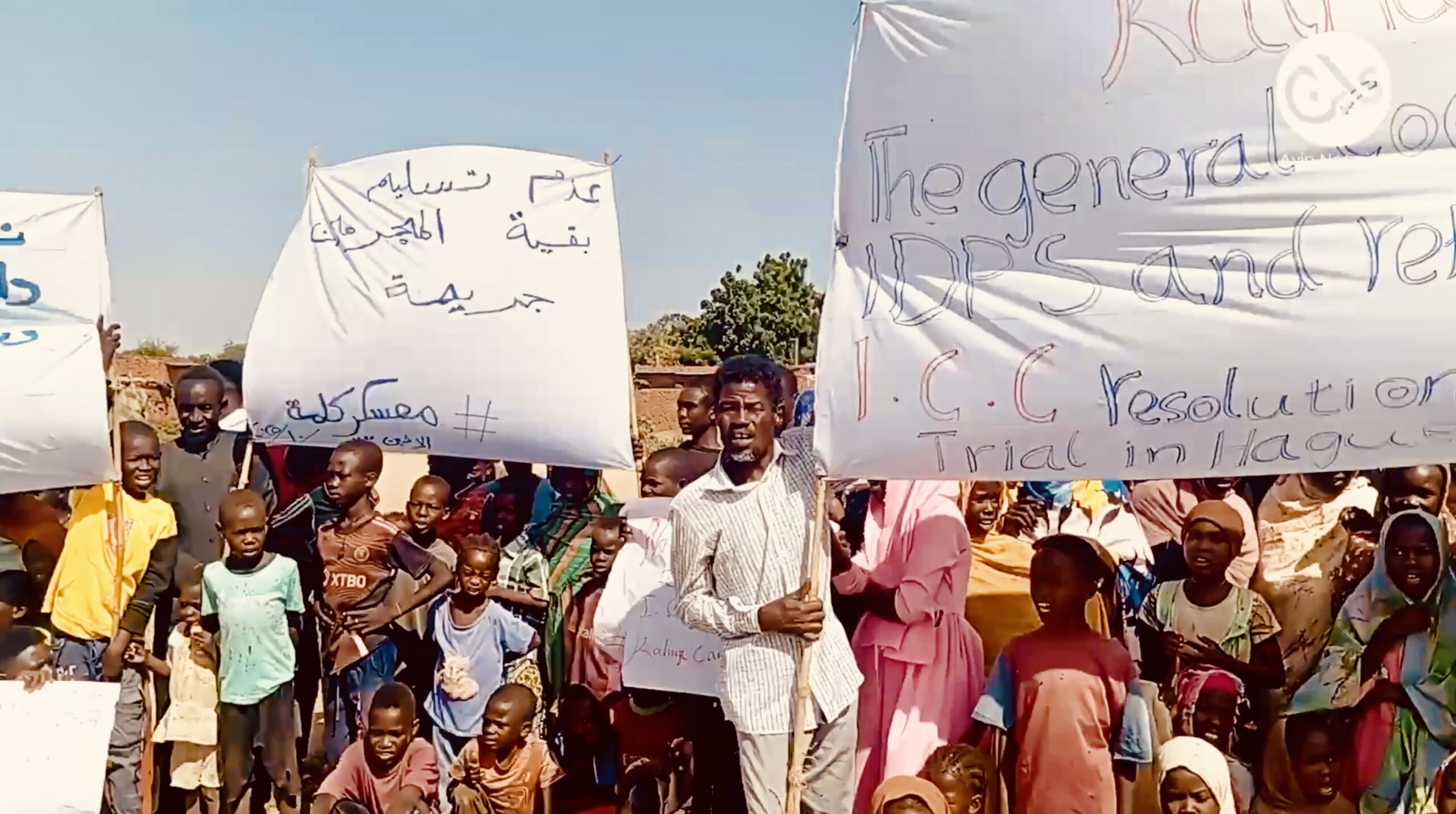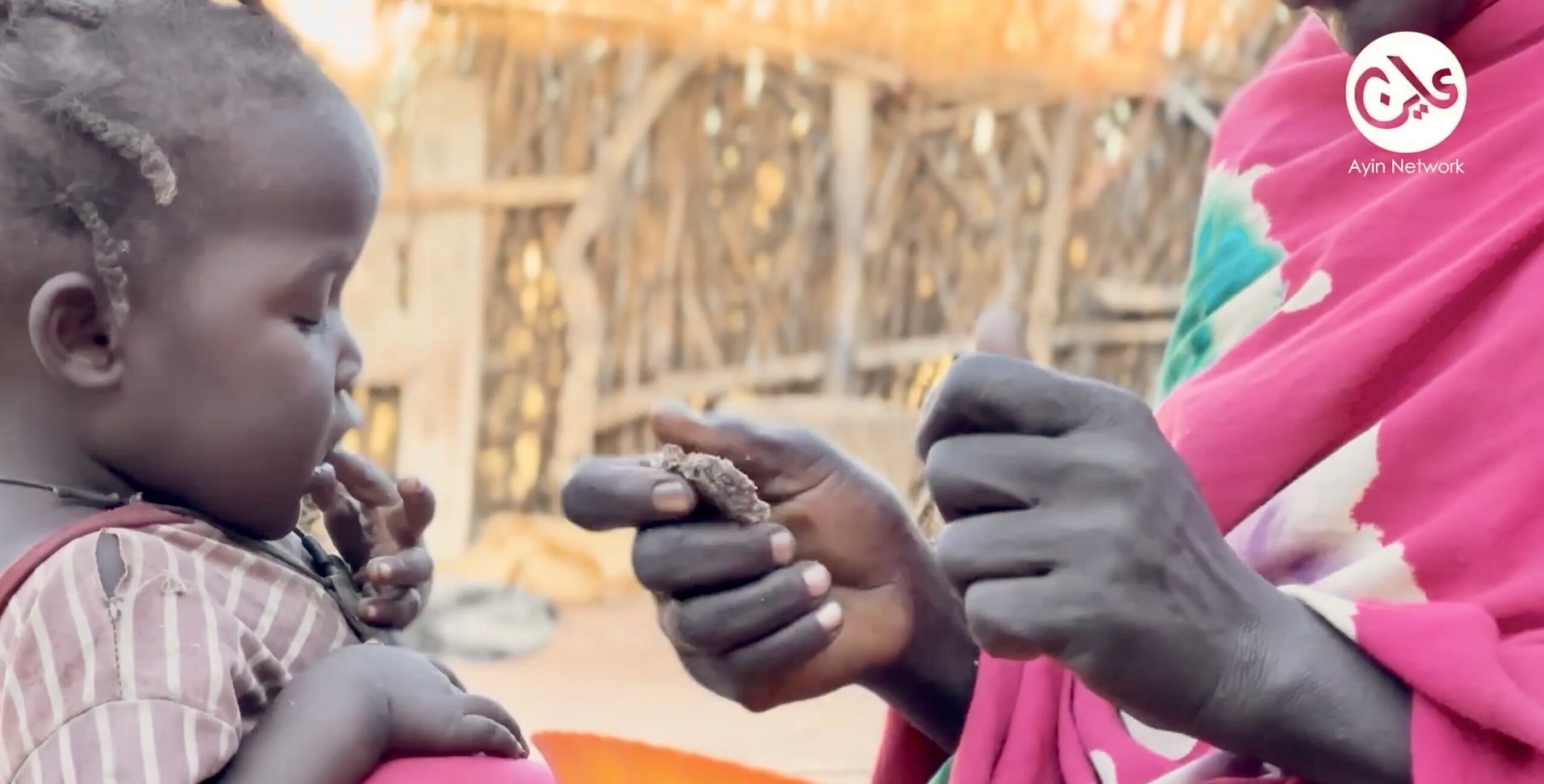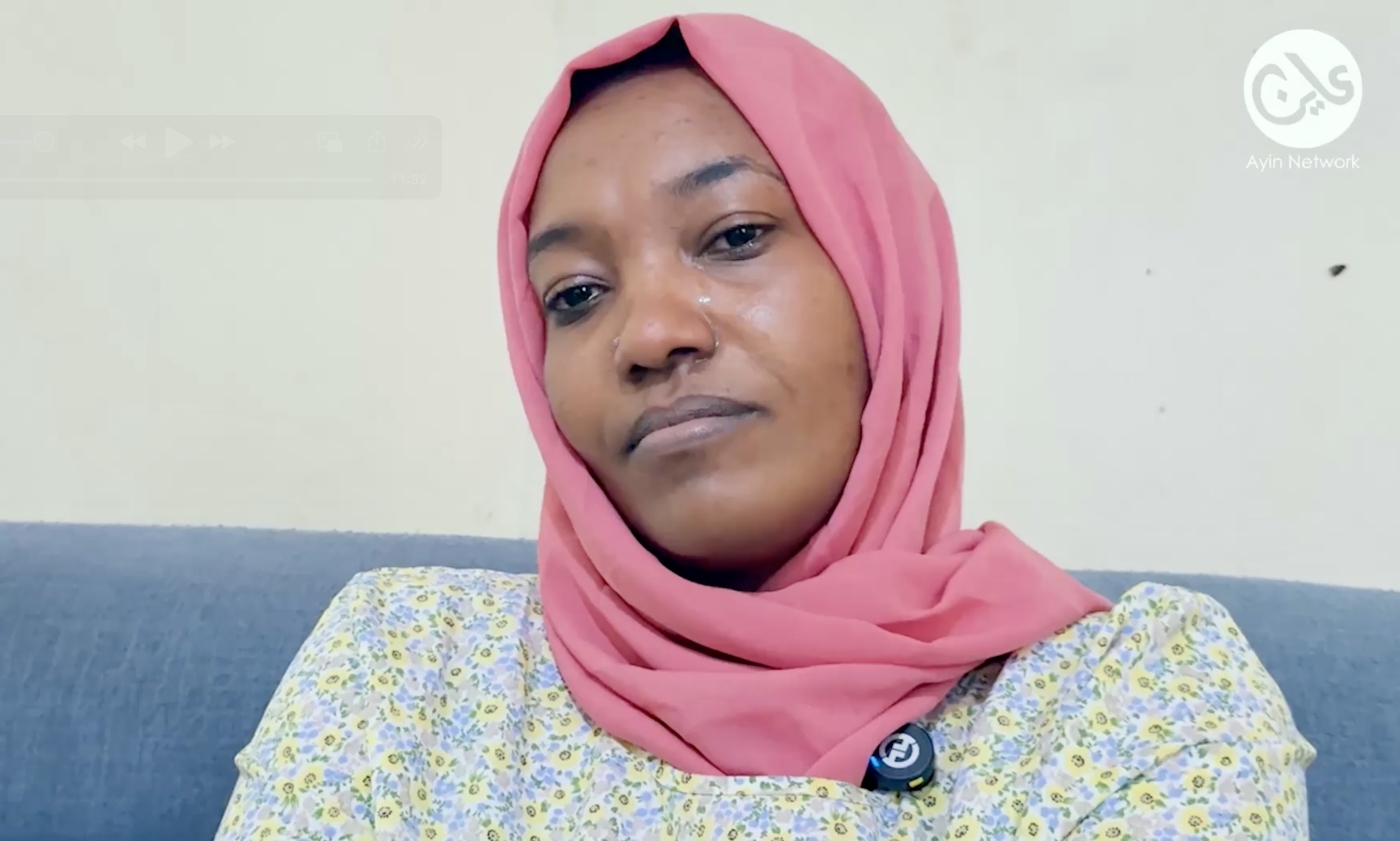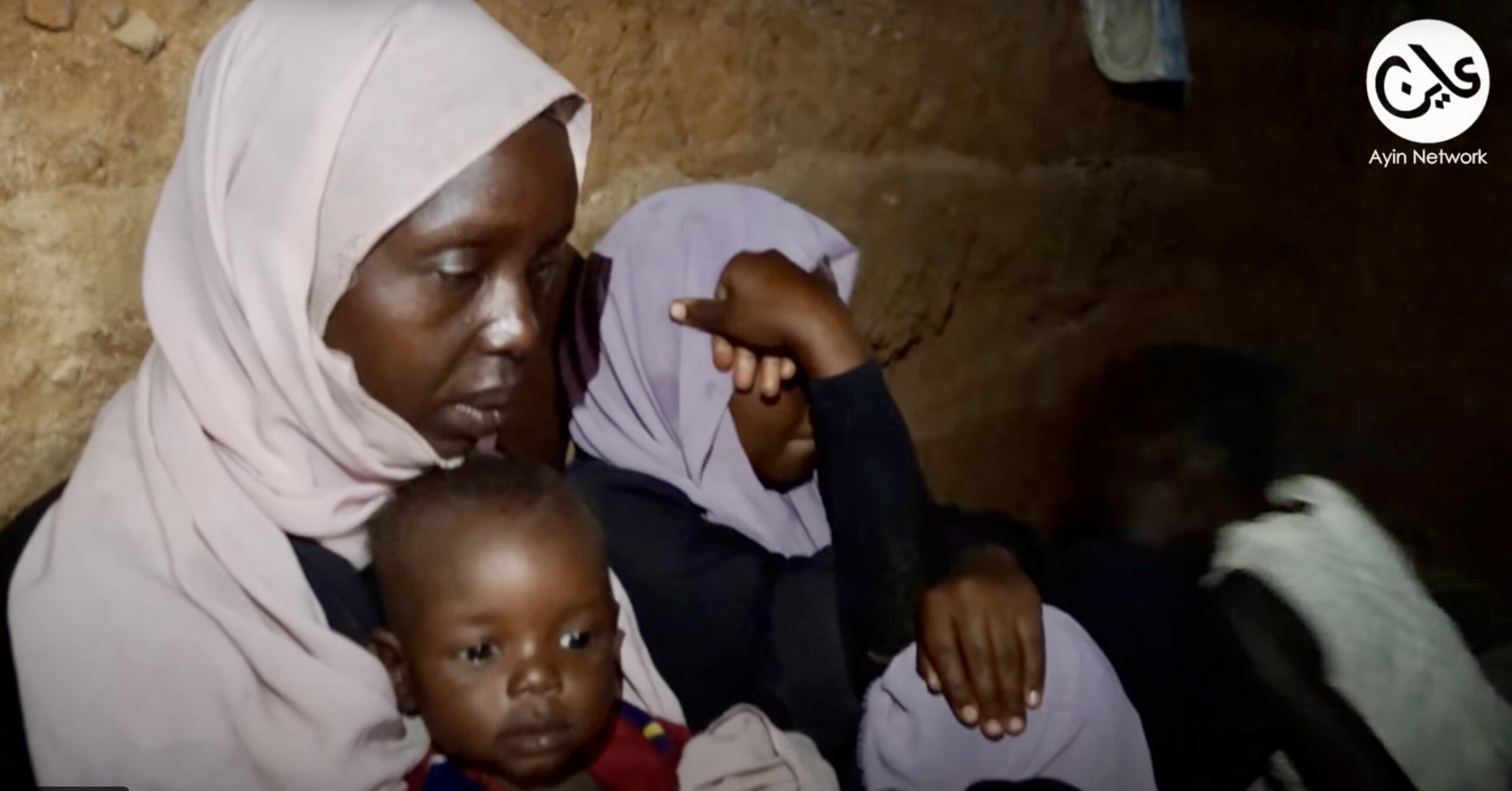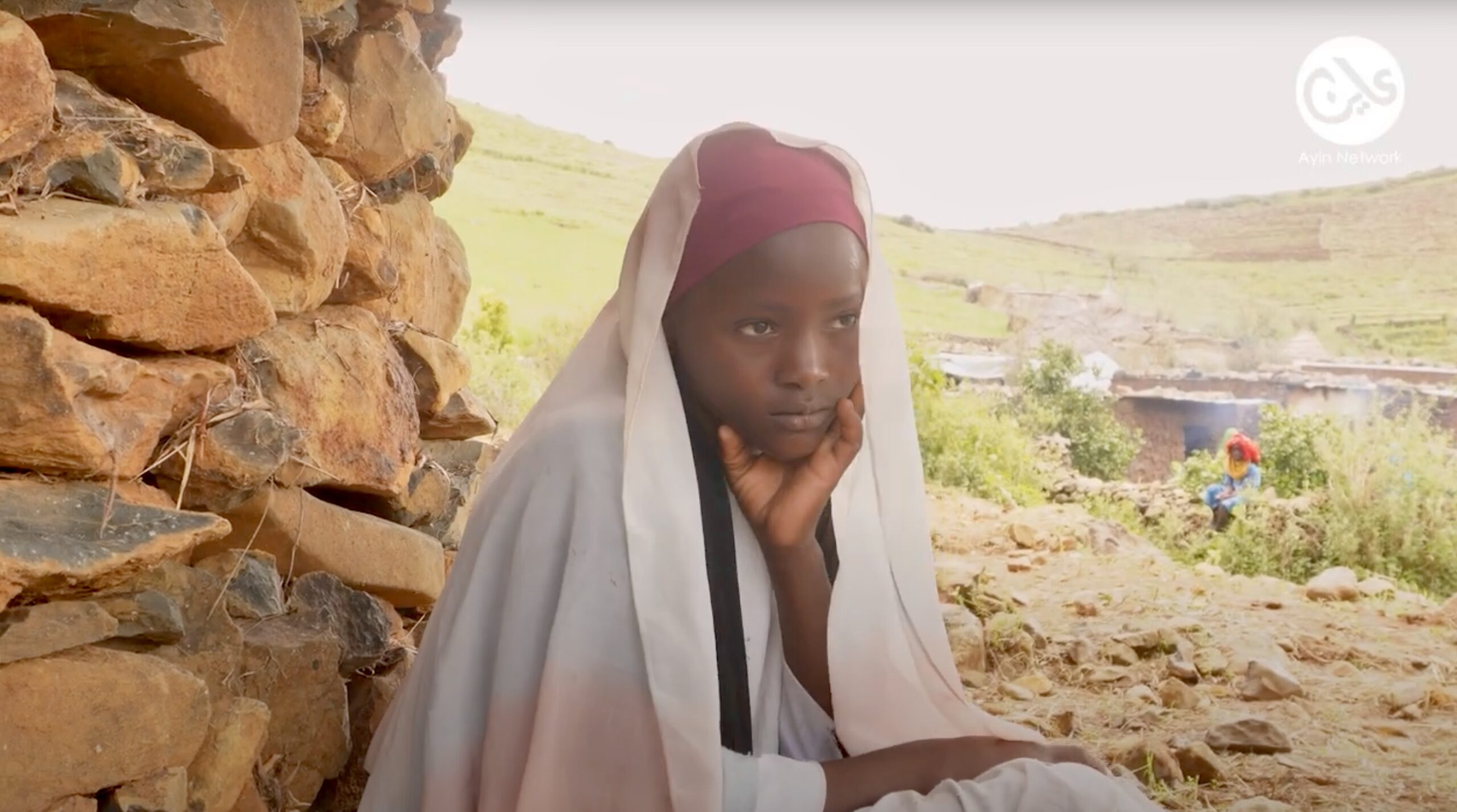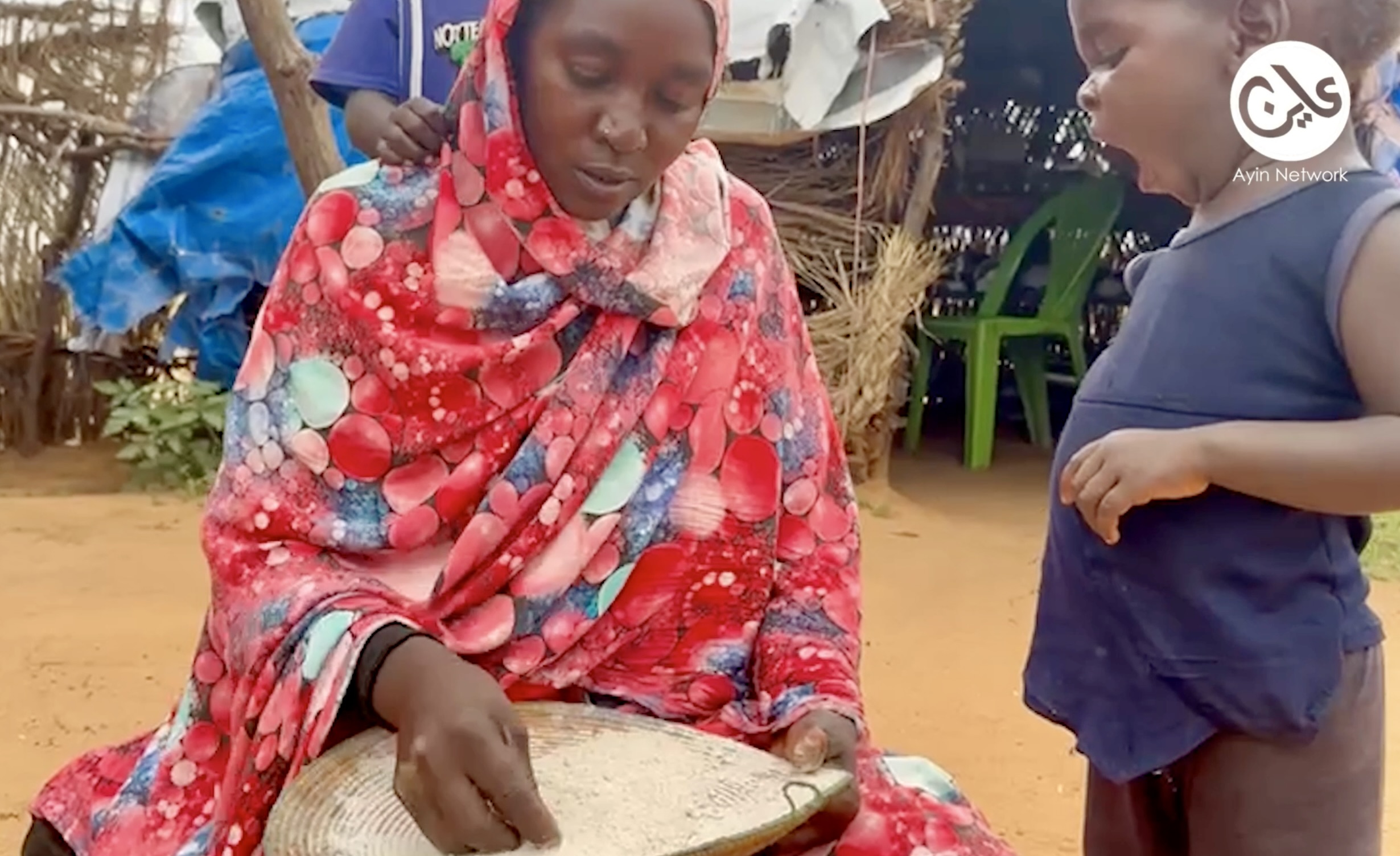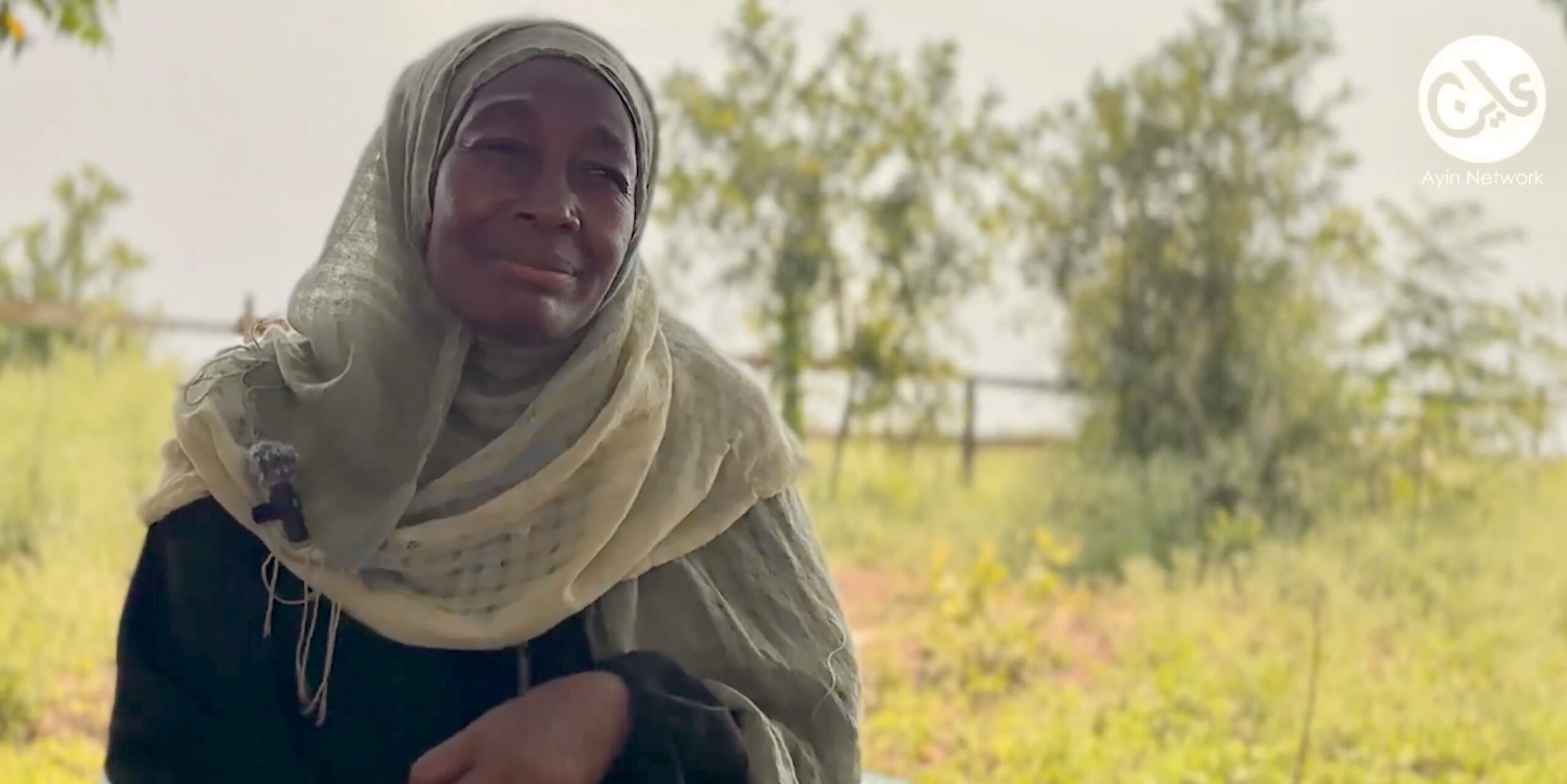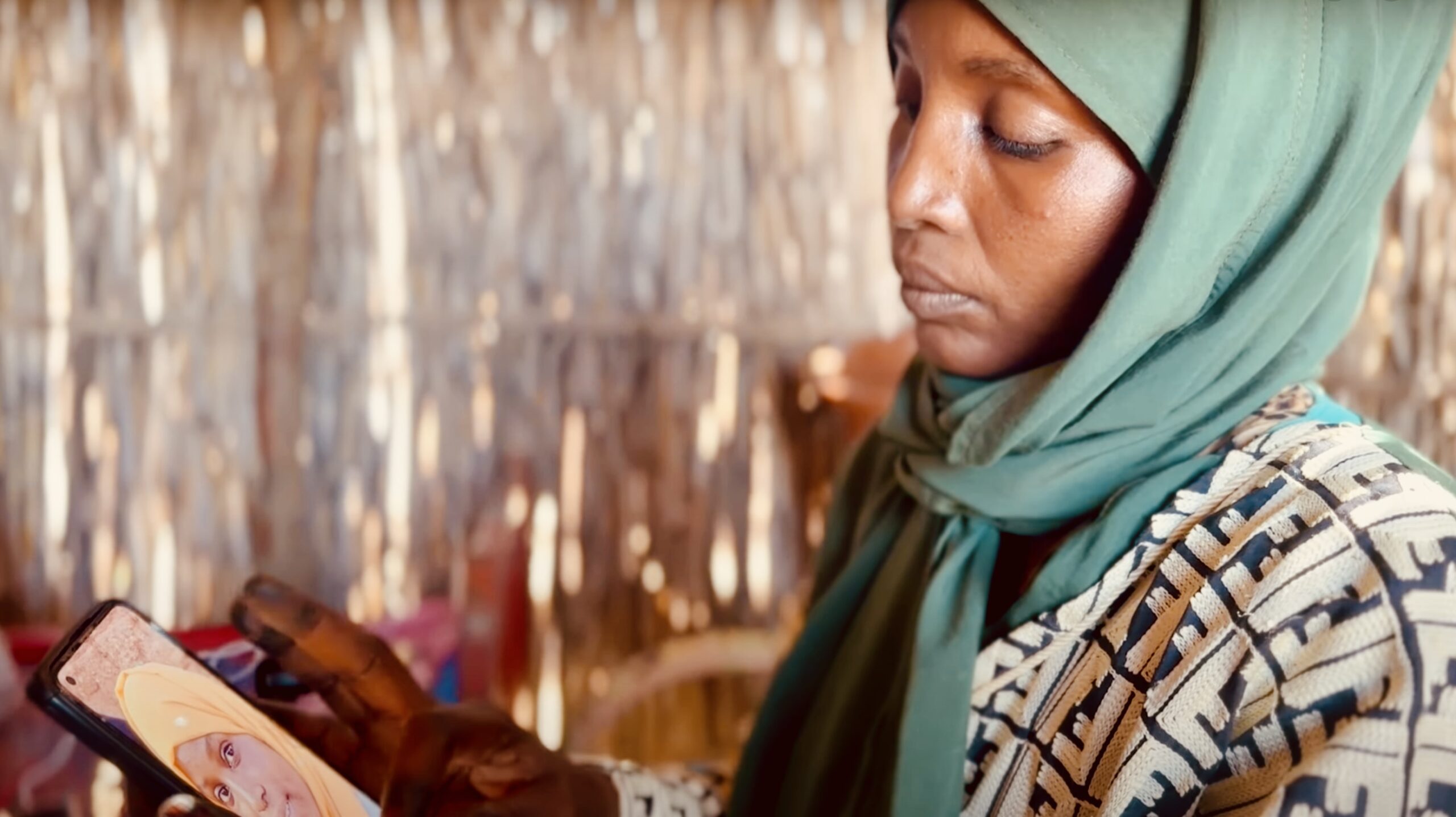Empty pockets: Sudan army military needs vs market prices
8 August 2024
While the war between the army and paramilitary Rapid Support Forces surpasses 15 months, Sudanese contend with another conflict on a daily basis: ever-shifting, rising prices. The de facto army government’s mass military spending has led to currency fluctuations and higher prices that few Sudanese can afford.
Millions of Sudanese trapped in war zones and those in safe states are facing sharp increases in food prices that have reached record levels amid fears that they will escalate further as the Sudanese pound continues to collapse.
“Many families have given up on purchasing food items they used to buy, and some of them have now reached the point of buying only half a ball of lentils to cook for their sole daily meal,” a small shop owner in northern Sudan told Ayin.
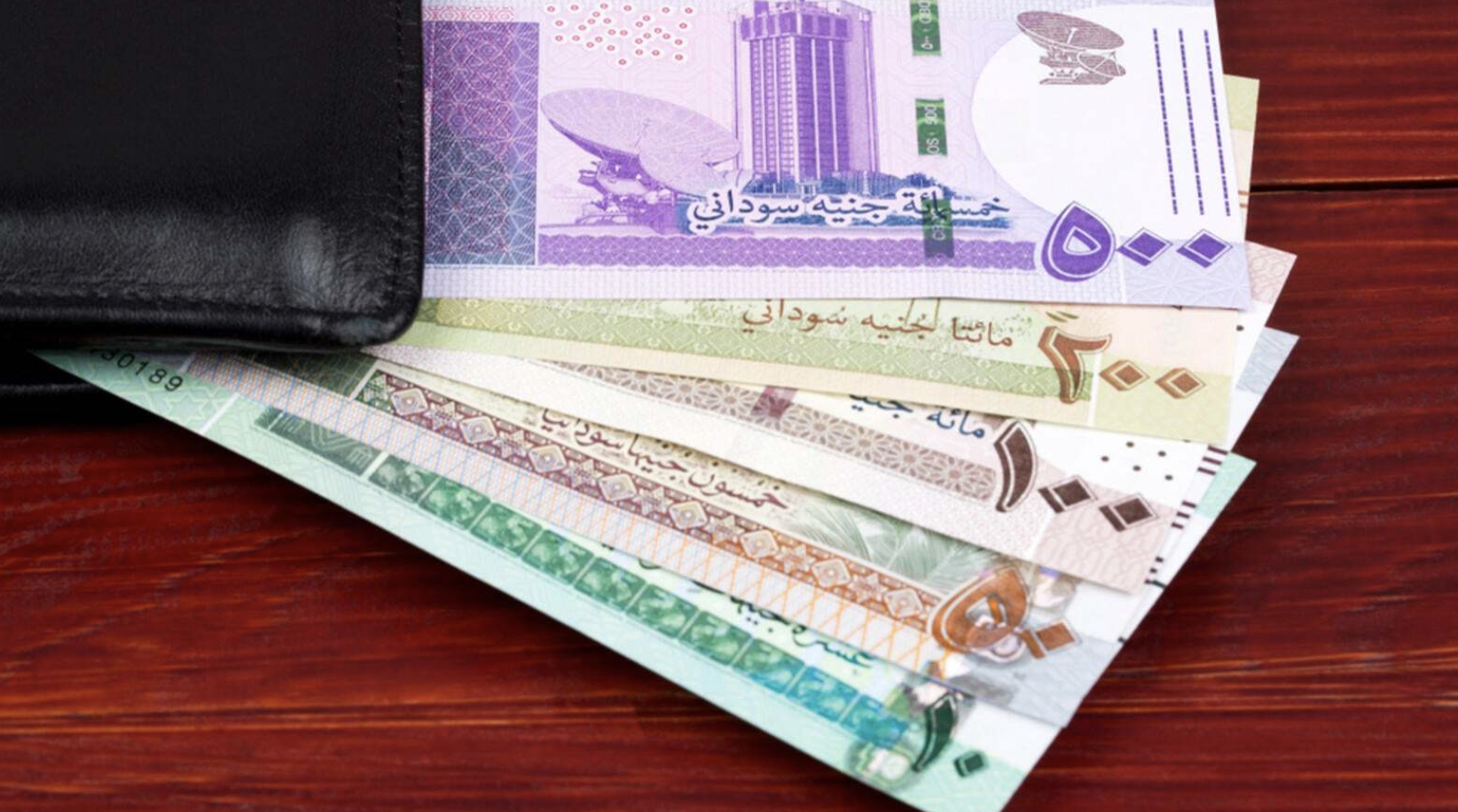
The Devaluation of the Pound
Sudan’s Central Bank must still put an end to the “aggressive devaluation of the pound,” economic researcher Ahmed Bin Omar told Ayin, suggesting that the exchange rate may push the Sudanese pound out of the currency exchange market. Last month, the exchange rate of the USD reached 2,900 SDG in army-controlled areas, which was its highest recorded rate, before falling slightly to 2,600 Sudanese Pounds.
“If the pound continues to deteriorate at this rate, workers in the government sector, for example, cannot depend on their monthly wages, which will lose their value in purchasing goods and paying for services,” Bin Omar said.
“There is no way out except to stop the war and restore the export balance in favour of the Sudanese pound by raising foreign currency in the banks,” he added. “This requires a long series of financial and economic operations that the current government cannot carry out.”
Military spending is worsening Sudan’s economic situation, and army generals are asking for more money to buy weapons from China and Iran. Economic expert Mohamed Ibrahim points out that the Sudanese army’s military procurement department has great influence over the government in Port Sudan and is demanding more money to conclude arms deals with suppliers.
In an interview with Ayin, Ibrahim said that he expects the weapons’ sales to the Sudanese army will reach $120 million this year, paid in instalments, thus igniting what he calls the “greed of war deals” in the foreign exchange markets in the cities of Port Sudan, Kassala, Atbara, and Gedarif, which are the four largest cities in currency trading.
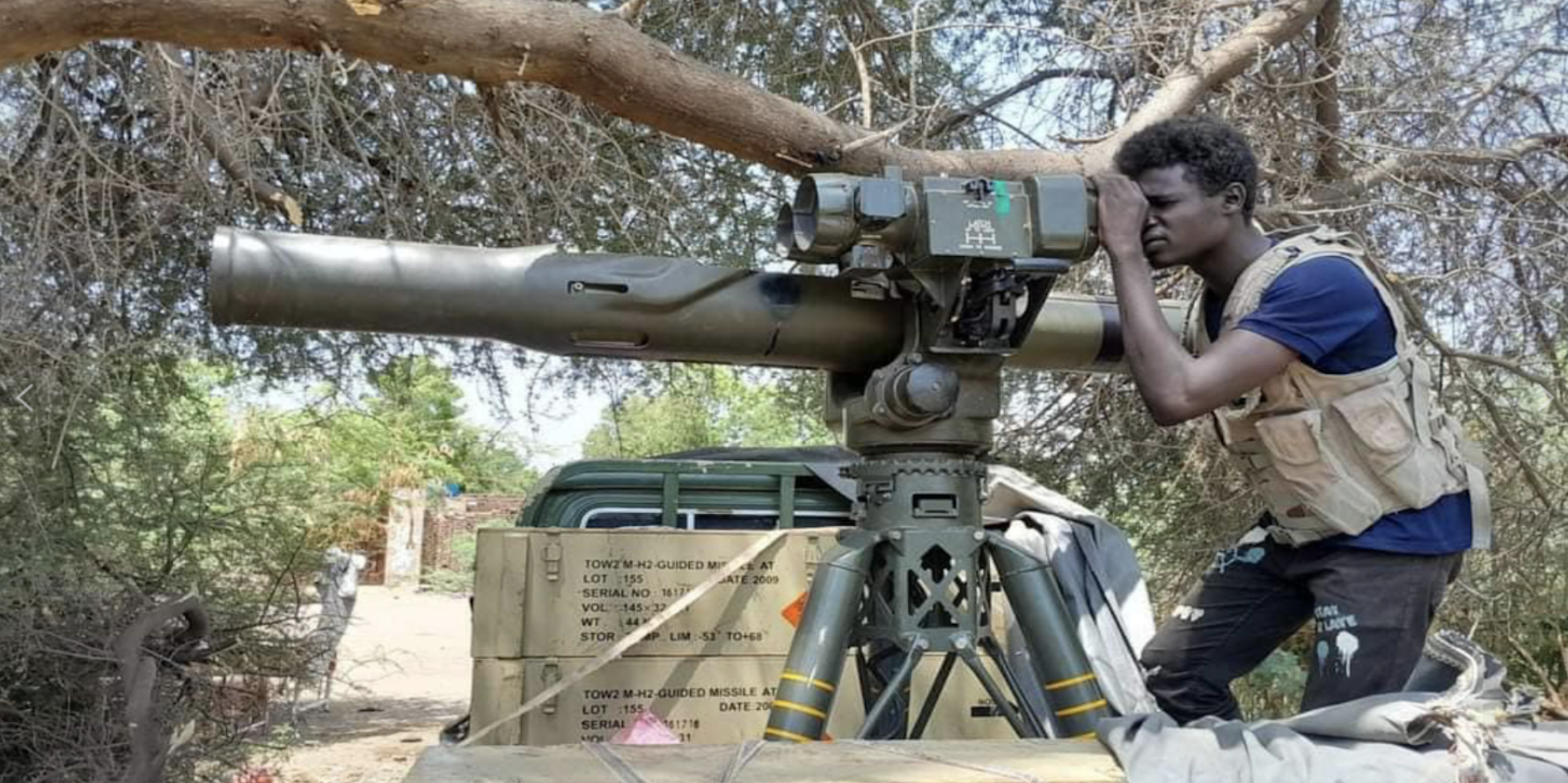
Military purchases and currency fluctuations
Desperate for foreign currency in their military purchases, the de-facto government sends requests for foreign currencies to the black market, Bin Omar told Ayin. “The army’s purchasing committee asks major traders in the black market to supply it with dollars, and here these currency traders raise the price of the US Dollar. For example, the market received an order on 9 July, and within hours the dollar jumped against the Sudanese pound from 1,900 to 2,100 and then to 2,270 [Sudanese] pounds.”
The black market now depends on these foreign currency requests by the army, Bin Omar added, and ensures the exchange rates fluctuate on a monthly, sometimes bi-monthly, basis.
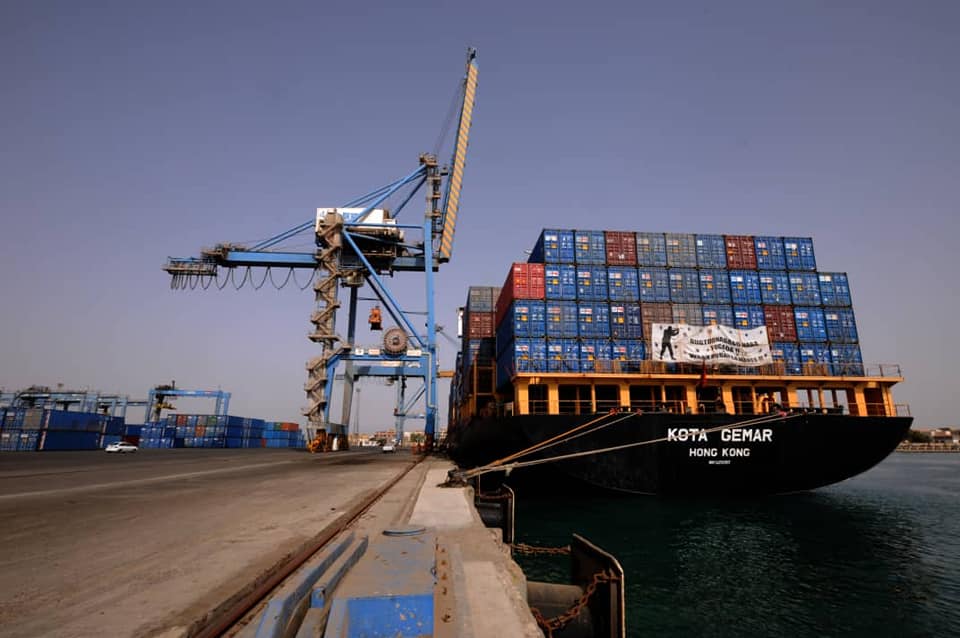
Import taxes to fuel the war, impoverish the people
In three months, Sudan imported fuel and food commodities worth $70 million; these shipments were not imported by the government in Port Sudan, but rather by private businesses, a source in the government’s Sudan Ports Corporation told Ayin. “The ships that arrived at Port Sudan port loaded with fuel, sugar, and flour belong to businessmen who have good relations with decision-makers in Sudan’s Central Bank and the Ministry of Finance,” the source added.
The cash-strapped, de-facto military government then adds import taxes to the good at the market rate, the same source said. “The Ministry of Finance receives considerable fees from fuel and goods shipments. Not only did the government lift the subsidy completely, but it also collected additional funds that increased the prices of these goods when they reached citizens.”
According to an employee at a Customs Clearance Office in the city of Wadi Halfa, northern Sudan, place heavy taxes on all imported goods crossing the border from Egypt. “A shipment such as biscuits and sugar is subject to the customs authority imposing thousands of dollars on it. In some shipments, importers pay around five thousand dollars to clear a single shipment,” the customs official told Ayin. The price for one kilogramme of flour can increase by 40% after customs, the official said, adding to the price burden of impoverished Sudanese citizens.
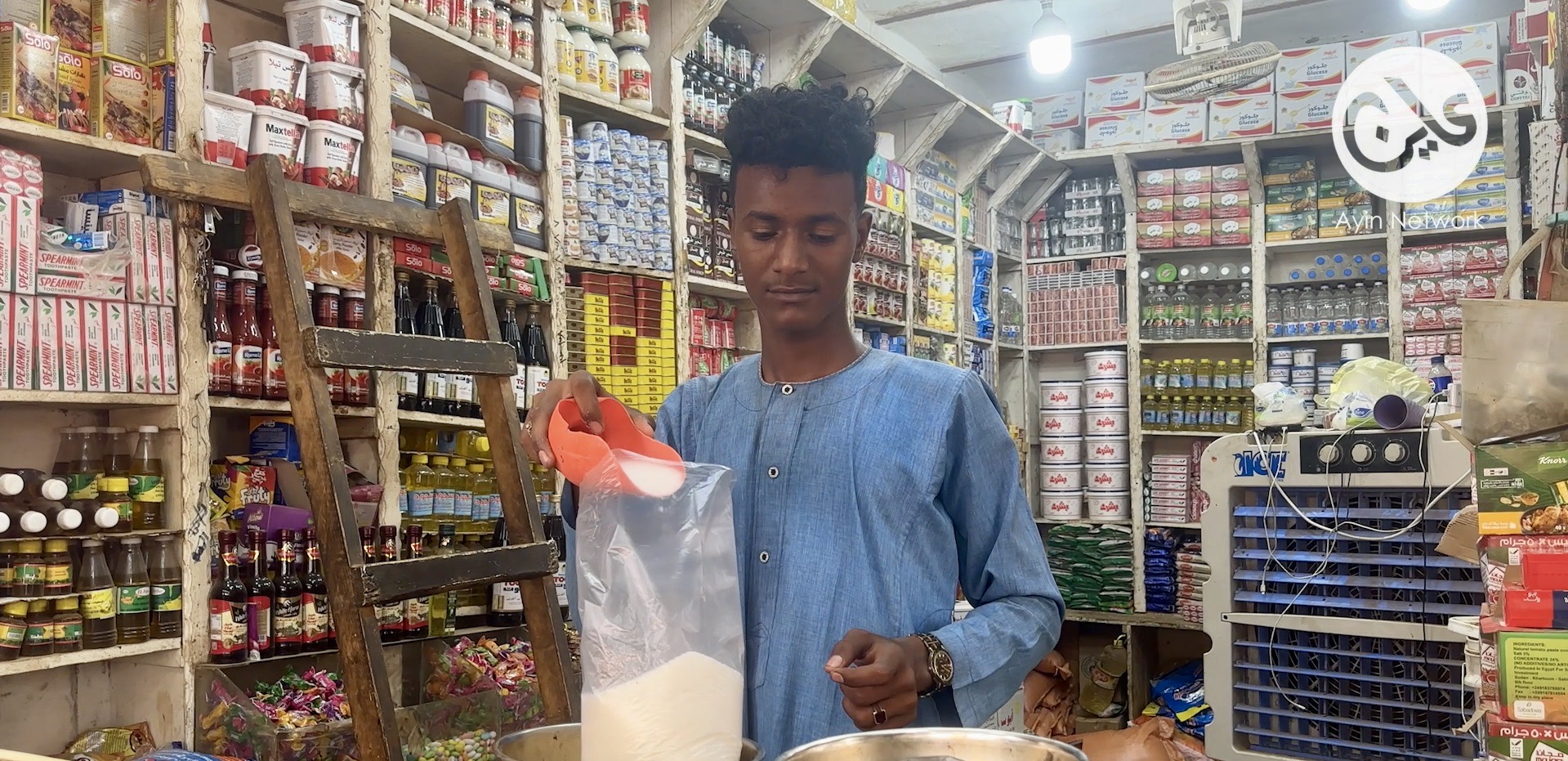
Higher prices, no subsidies
Roughly two years ago, Ibrahim said, the the government removed basic subsidies for commodities such as fuel, wheat flour, medicine, electricity, education, and health.
“While the government is financing the arms deal with about $25 million per month, it is not prepared to finance the import of $50 million worth of medicines within three months for the public health sector, where hundreds of patients are dying in search of life-saving medicines that are unavailable,” he said.
Ibrahim explained that the taxes the government collects from goods, passport services, and airports amount to 100 million USD per month and are spent on state institutions, salaries, and allowances of the members of the Sovereign Council. “Government expenditures increased during the war by 50% to increase the allocations of officials,” he added. While government spending on the education and health sectors did not exceed 3% of the total budget, he added.
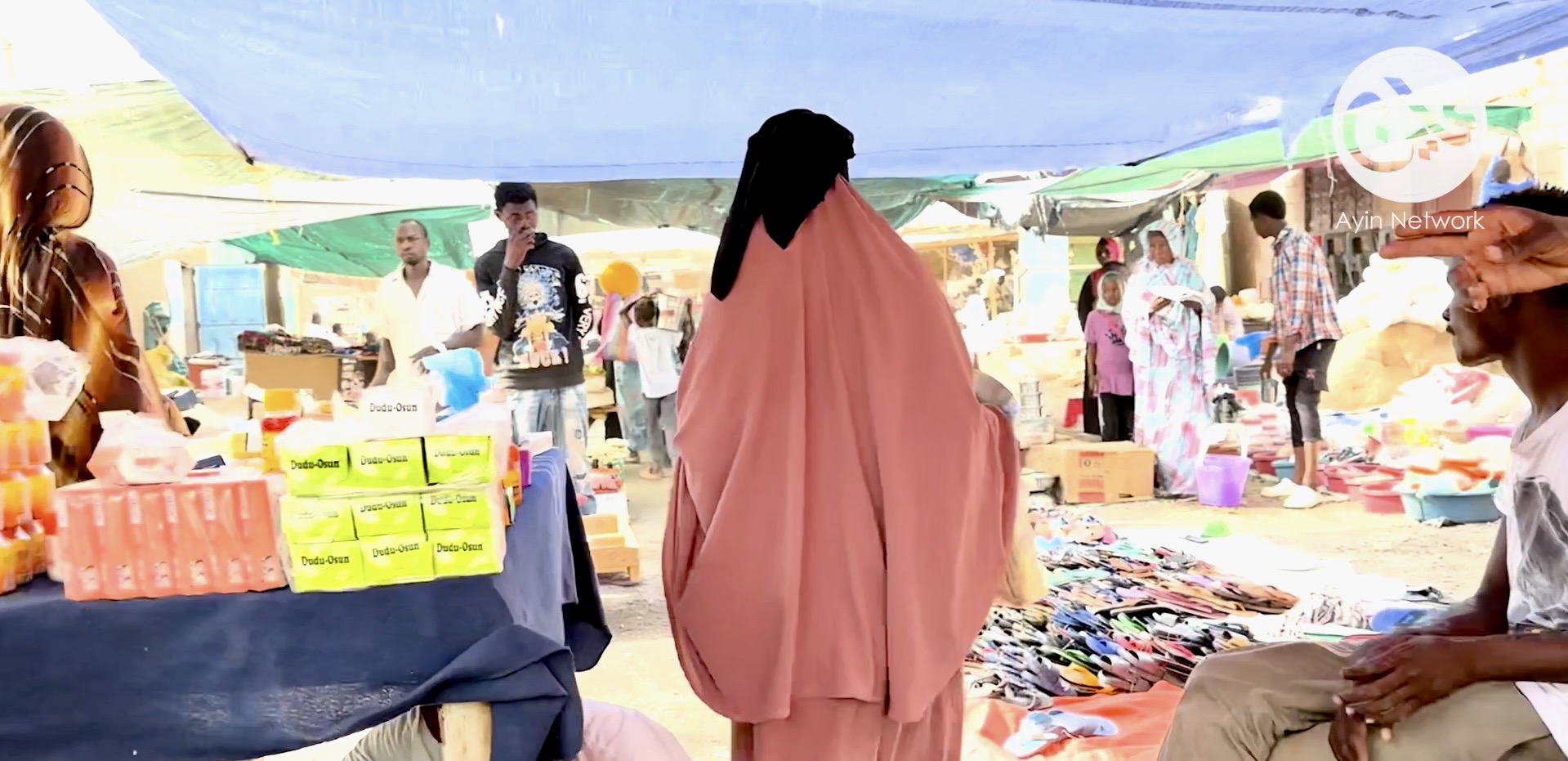
Prohibitive prices
A sack of corn, a staple food for Sudanese, costs 90,000 SDG in El Obeid, the RSF-occupied capital of North Kordofan State, which is 15,000 SDG more than in production areas. When shipments reach El Obeid, they pass through a series of military checkpoints by the RSF and armed gangs on the roads, each demanding a toll and forcing traders to increase their prices.
Samah Al-Hussein prepares meals in her family’s home in El Obeid to share with people. A sack of sugar has gradually increased from 45,000 to 170,000 SDG since the beginning of this year. “Food has become scarce, leaving people hungry and vulnerable. This situation has led to children experiencing weakness and health issues like malaria and anaemia,” Al-Hussein said.
People are facing immense challenges in obtaining clean water, resorting to collecting rainwater as the main water station is on the verge of closure. Citizens in the city are also in dire need for cooking gas, with the price of a five-kilogramme barrel reaching 140,000 SDG, compared to five thousand pounds before the war.
“The government’s spending is focused on the war. They are waging a war, and no one is hearing our screams,” Samah said. The volunteer cook pointed out that families have stopped buying meat, with the price of a kilogramme reaching 27,000 SDG and the price of a large container of cooking oil has increased to 100,000 SDG, up from 33,000 pounds at the beginning of the year. A bag of rice has also jumped to 65,000 pounds, up from 25,000 pounds, in just two months.
In an interview with Ayin, economist Wael Fahmy described the current situation as “the freefall of the Sudanese pound,” adding that the situation in Sudan is similar to what happened in Zimbabwe and Venezuela, where wheel-barrows of cash will only cover basic necessities. “The war in Sudan increased the exchange rate crisis – the current situation is a complete economic collapse.”




